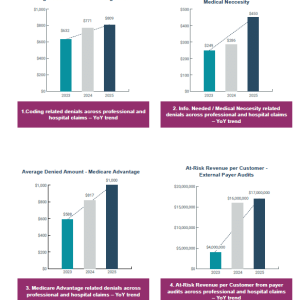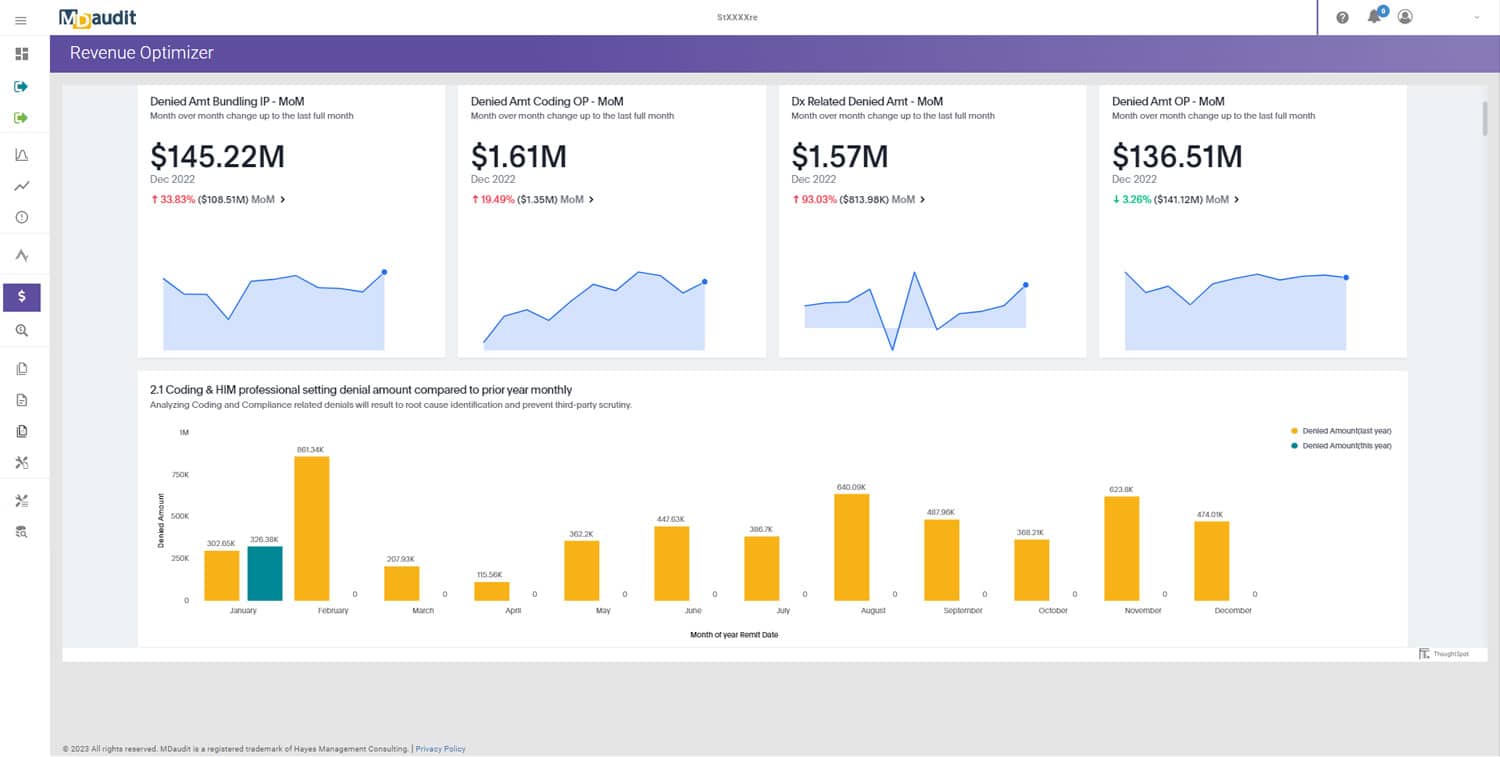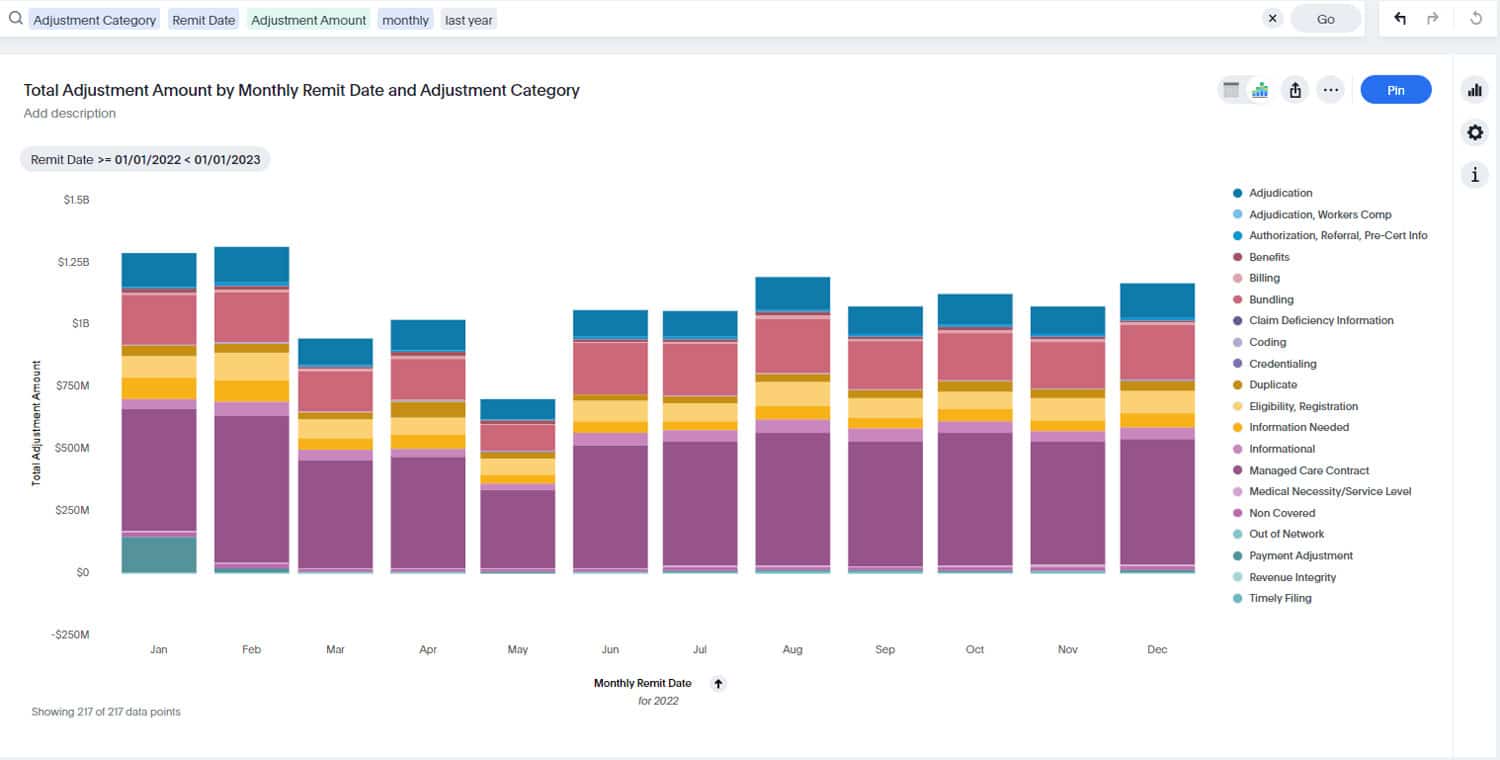This is part two in a three-part series examining denials prevention, including the use of technology, payers’ ever-changing rules, and managing workflows for maximum efficiency.
With projected 2022 margins on pace to be the worst year for hospitals since the beginning of the COVID-19 pandemic, healthcare leaders must employ all available strategies to protect the financial health of their organizations. More comprehensive revenue integrity models are increasingly expanding traditional revenue cycle management processes in search of means to optimize reimbursement and eliminate revenue leakage.
These organizational shifts are an essential step, but delivering a healthy bottom line amidst record labor shortages, skyrocketing expenses, and supply disruptions will also require many healthcare executives to make larger strides to keep up with the latest advancements and emerging best practices. The industry is experiencing a surge of new technologies – including artificial intelligence (AI) and machine learning – designed to improve outcomes and maximize efficiencies.
PAYERS ARE ALREADY THERE
Increasingly, payers are utilizing AI and machine learning to analyze claims and adjudicate before payments to reduce their administrative burden.
Changes in payers’ claim review strategies and increased use of AI are contributing to slower payments and increased denials. Though payers were once likely to pay claims first and audit later, AI and machine learning enable them to now analyze large volumes of claims rapidly, resulting in more intense scrutiny prior to paying any claim that may be an anomaly.
In addition to a denial rate of 3 out of 10 claims (31%), an MDaudit analysis identified a 9.4% increase in lag days between initial claim submission and adjudication in the first quarter of 2022 as compared to the same period last year.
As payers become more sophisticated with advanced analytics and technologies, hospitals and health systems must respond in kind to optimize revenue. The complexity and ever-changing nature of payer requirements are more expansive than any team could possibly manage to predict and avoid denials.
KEEPING PACE WITH PAYERS
To proactively identify and resolve claims likely to result in denials or delays before payer adjudication, leading healthcare organizations are moving beyond retrospective auditing to more sophisticated daily risk monitoring and data analysis.
Implementing such revenue integrity-strengthening measures requires the necessary infrastructure. For example, MDaudit uses a unique, proprietary payer-centric rules engine. Leveraging rules based on a nationwide payer base, such tools apply advanced algorithms to help healthcare organizations reduce first-pass denial rates and accelerate payment by proactively detecting anomalies in at-risk claims prior to submission for adjudication. These rule sets provide an additional layer of validation not offered by traditional claims scrubbers, providing greater insights into the costliest sources of denials.
Advanced analytics tools can also automate the previously manual process of mining thousands upon thousands of claims lines across denials to identify root causes and problematic revenue trends in healthcare for process improvement.
REVENUE INTEGRITY RE-IMAGINED
When used in tandem, advanced diagnostic and predictive analytics such as denial data trends and the payer-centric rules engine can help revenue integrity professionals keep abreast of the challenge of payers’ ever-changing practices – to prevent denials before they occur, gain detailed insights into denial sources, and improve cashflow for the entire organization.
MDaudit’s cloud-based Revenue Integrity Suite offers a reimagined, predictive way to mitigate denials.
Schedule a demo to learn how the Revenue Integrity Suite puts analytics into action to prevent 20% of high-value hospital charges that drive 80% of denials impact.










